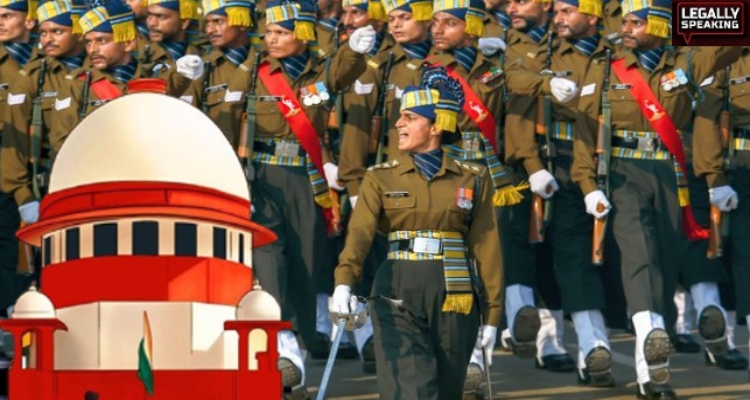
Observing a discrepancy in the empanelment process of Army officers, the Supreme Court has directed the Centre to provide clarification regarding the procedure for male officers in comparison to their female counterparts.
A bench comprising Chief Justice D Y Chandrachud and Justices J B Pardiwala and Manoj Misra instructed Attorney General R Venkataramani to submit an affidavit elucidating the central government’s stance.
This direction followed senior advocate Huzefa Ahmadi, representing women Army officers, alleging discrimination in the empanelment of female officers. Ahmadi referred to a previous order issued by the apex court on November 3 last year, contending that it mandated the consideration of all women officers evaluated by the earlier special selection board 3B (for promotion to the rank of colonel), barring those already empanelled. He argued that including other empanelled officers would constitute a violation of the directives.
Venkataramani contended that the empanelment concept is rooted in comparative merit among officers from the same batch. He cited a policy document filed by the Union government, asserting that previously empanelled officers were not to be disturbed. However, he emphasized the necessity to benchmark the officers considered by the fresh special selection board with the empanelled officers.
Ahmadi opposed this argument, asserting that a similar procedure was not followed for empanelment of male officers. He argued that male officers under consideration were not assessed alongside the batch of already empanelled officers, which he deemed discriminatory towards women officers.
Taking cognizance of the submissions, the bench directed the AG to file an affidavit and scheduled the matter for hearing on March 11.
Previously, the top court had criticized the Army’s stance of denying women officers empanelment as colonels as “arbitrary,” directing authorities to reconvene the special selection board promptly for their promotion. The court had condemned efforts to curtail the rightful entitlements of women officers.
The Supreme Court was addressing petitions filed by women officers of the Indian Army who were granted permanent commission but were not empanelled for promotion to the rank of colonel through selection.
The dispute revolves around the evaluation criteria established by the Army for granting permanent commission to women Short Service Commission (SSC) officers, which the top court deemed as systemic discrimination causing economic and psychological harm and an affront to their dignity in 2021.
The apex court deemed the administrative requirement imposed by the Army authorities, benchmarking women SSC officers with the lowest-ranking male officers in the corresponding batch while considering them for PC, as arbitrary and irrational.
In a landmark verdict on February 17, 2020, the Supreme Court directed that women officers in the Army be granted permanent commission, rejecting the Centre’s argument based on “physiological limitations” as rooted in “sex stereotypes” and “gender discrimination against women.”
The court mandated that within three months, all serving SSC women officers be considered for permanent commission, irrespective of completing 14 or 20 years of service.
Subsequently, in another significant verdict on March 17, 2020, the Supreme Court paved the way for granting permanent commission to women officers in the Indian Navy, emphasizing the importance of a level playing field to overcome “histories of discrimination.”





